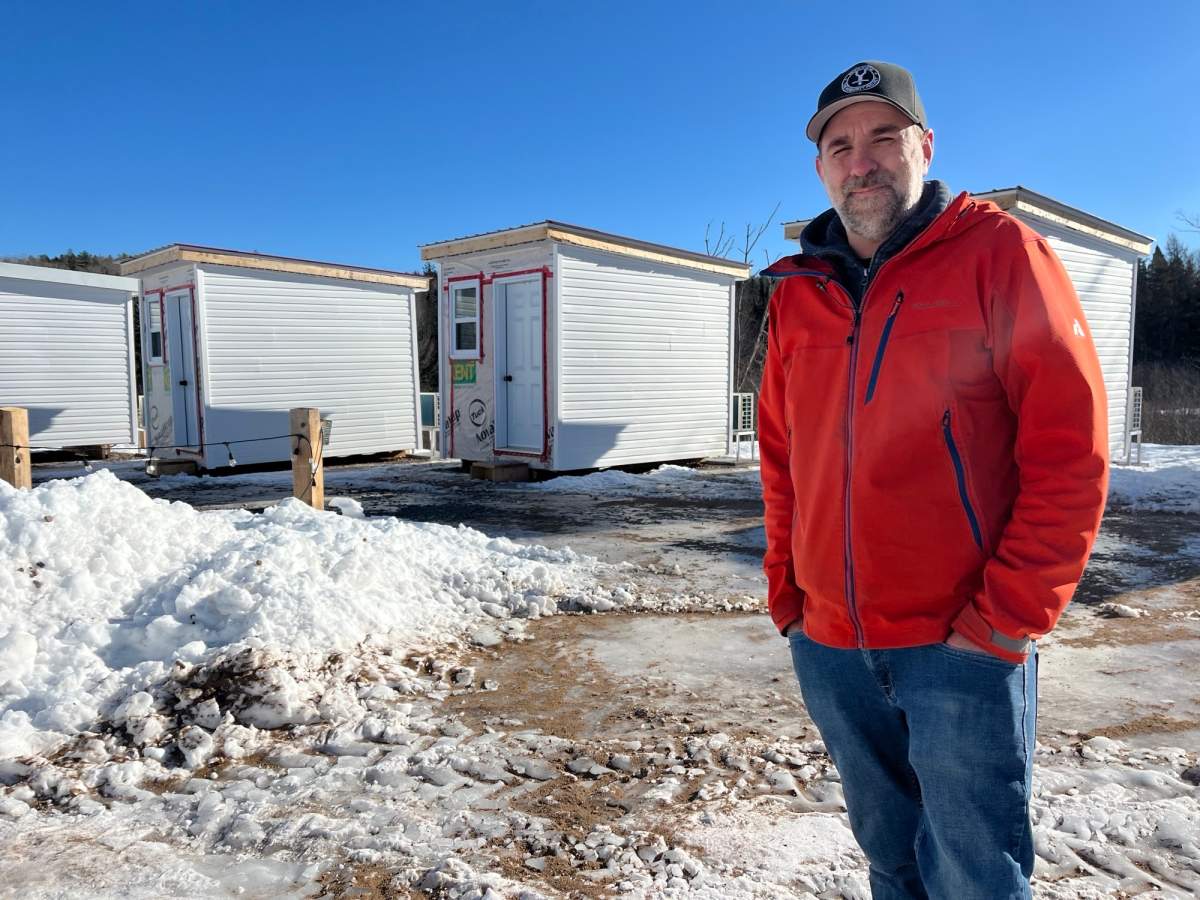After sleeping rough for three years, Jason Melvin finds peace in having his very own home.

He lives in one of the 21 bunkhouses that are part of the Humanity Project’s initiative to offer housing and support for mental health and substance use disorder on farmland located in Little River, N.B., a rural community roughly 40 kilometres away from Moncton.
Humanity Project founder Charles Burrell said people receive counselling at the farm, along with other activities.
Melvin moved in in late December 2023. He spends his days listening to music, woodworking and reflecting on recovery.
“There’s lots to do and you don’t have to do everything neither so there’s not a lot of pressure on us,” he said.
“It’s just really good…. It gives us a chance to think and try to figure out what’s wrong with us and what we need to do to fix it.”
Melvin has to travel to Moncton once a week to receive methadone as part of his opioid replacement therapy.
He said the sounds of the city have become overwhelming as he’s now accustomed to the peace and quiet on the farm.

Get breaking National news
Fellow resident David Totten grew up on a farm in Cassidy Lake, a rural community near Sussex.
He said the sound of the animals roaming the farm is a welcome change from the constant sound of sirens blaring on the streets of downtown Moncton, where he was homeless for five years.
“Last winter … it was really, really cold out and I couldn’t get into any of the shelters. It was a really bad winter,” he said.
“I’m really glad this place opened up.”
Totten hopes to stay sober and own his own home one day.
Burrell said the goal of the housing project was to help the residents transition to their own housing eventually, but there’s no fixed timeline.
“A person could be here for six months, a person could be here for three years. It’s not a timed program,” Burrell said.
“We would rather take the time that it takes so these people don’t go back to the streets or our shelter system.”
The project has received funding from the municipal and provincial governments, as well as support from private donors.
Burrell says the project has already exceeded his expectations.
“To see the change in people this quick and this early … I’m proud of our community.”
He said all of the bunkhouses have been spoken for, and he’s hoping to expand capacity as soon as possible.
“The hardest part for me is deciding who to take and who to leave behind because unfortunately I only have so much space for now,” he said.
He wants to eventually renovate an existing structure on the property to put in seven rooms for residents, as well as apartments and full-sized tiny homes.
Burrell is hoping to inspire other communities to follow the Humanity Project’s model.
“Right across our country there are people sleeping outside every night who are literally losing their fingers and toes to frostbite,” he said.
“People deserve better than that so I hope this does inspire people to do this in their community.”









Comments
Want to discuss? Please read our Commenting Policy first.